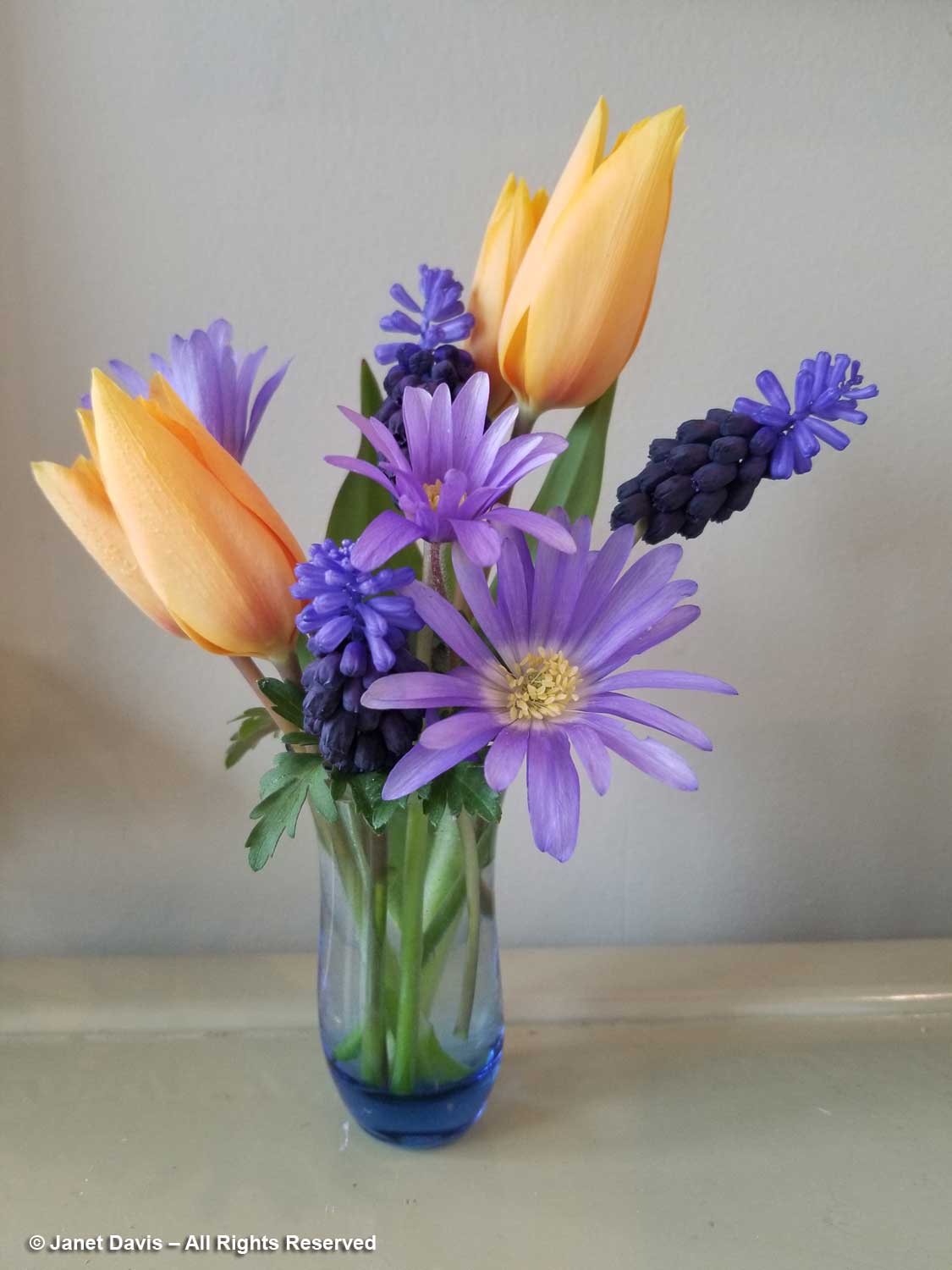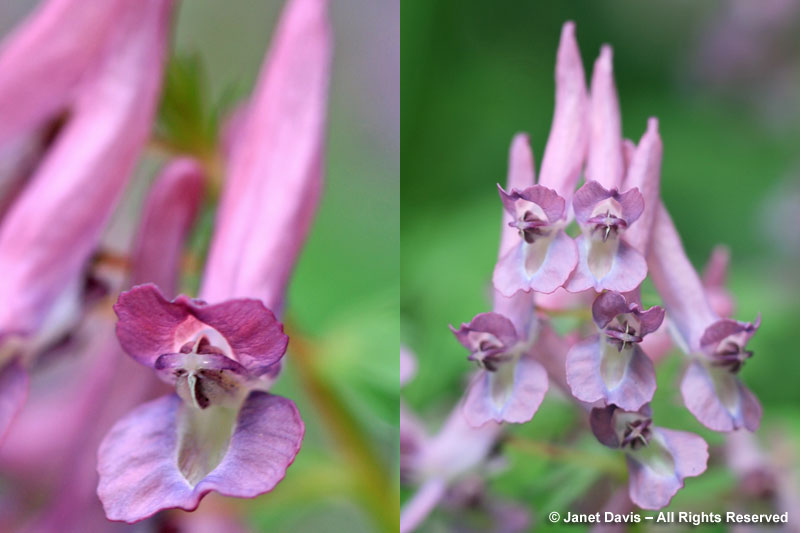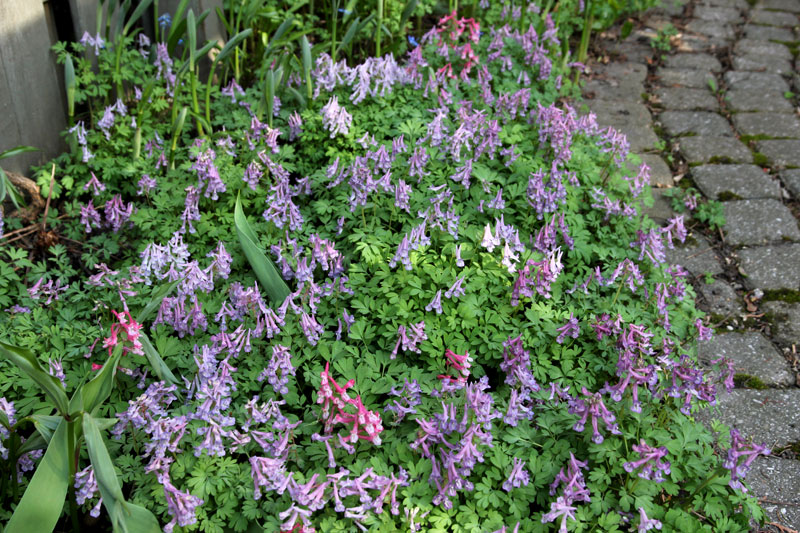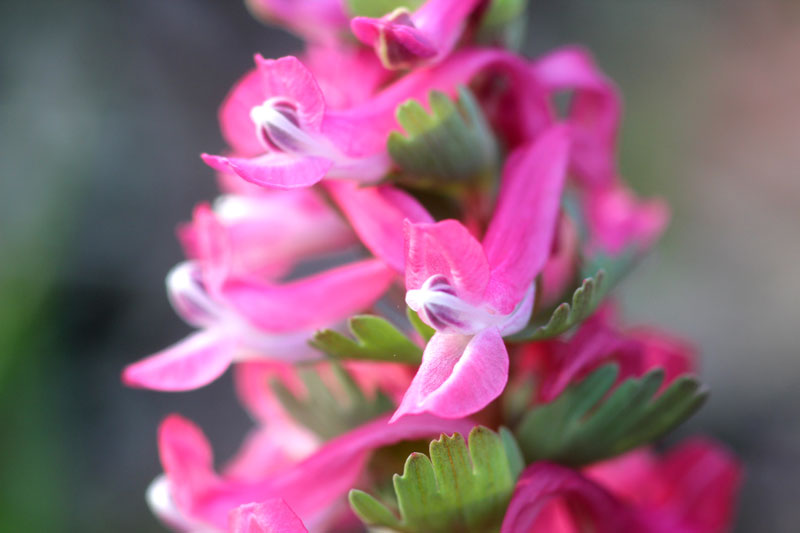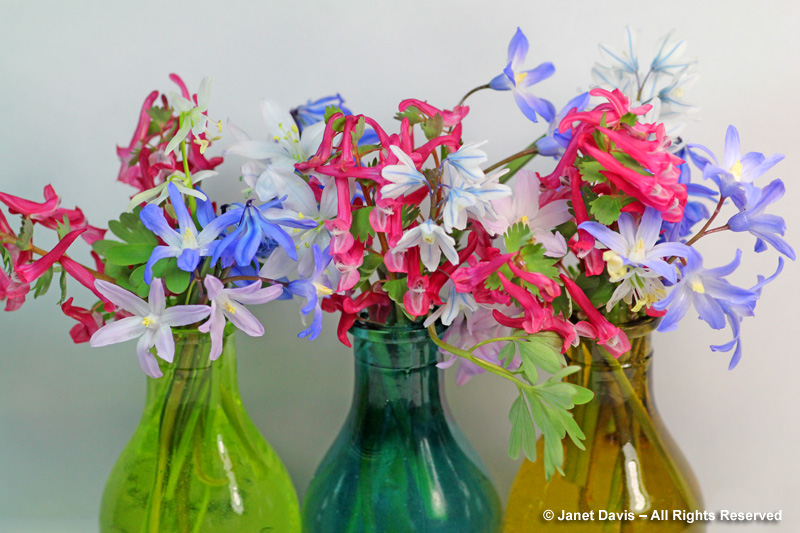My third fairy crown for April 25th brings this little wearable garden project one year full circle, from last April 14th when I made my first floral crown. Let’s look at this year’s model, featuring peach-orange ‘Gipsy Queen’ hyacinths; assorted early daffodils including my favourite, the small bicolored ‘Golden Echo’; the fabulous apricot-orange Tulipa praestans ‘Shogun’; T. kaufmanniana ‘Johann Strauss’; early broad-leaved grape hyacinth (Muscari latifolium); Greek windflower (Anemone blanda ‘Blue Shades’); dusky-mauve fumewort (Corydalis solida); and forsythia (F. x intermedia).

Last year, I crafted my very first floral crown with many of these spring blossoms, but spring weather being what it is, they were in flower 11 days earlier. And given that I’d only planted the ‘Gipsy Queen’ hyacinths in fall 2020, they took their time flowering and weren’t in the mix that early in 2021.

Soon after the “little blue bulbs” from my last fairy crown hit their stride, a few of the smaller daffodils and species tulips emerge, launching a long flowering ‘big bulb’ parade in a rainbow of colors and shapes. I know it doesn’t look like much now, but this little pollinator island…
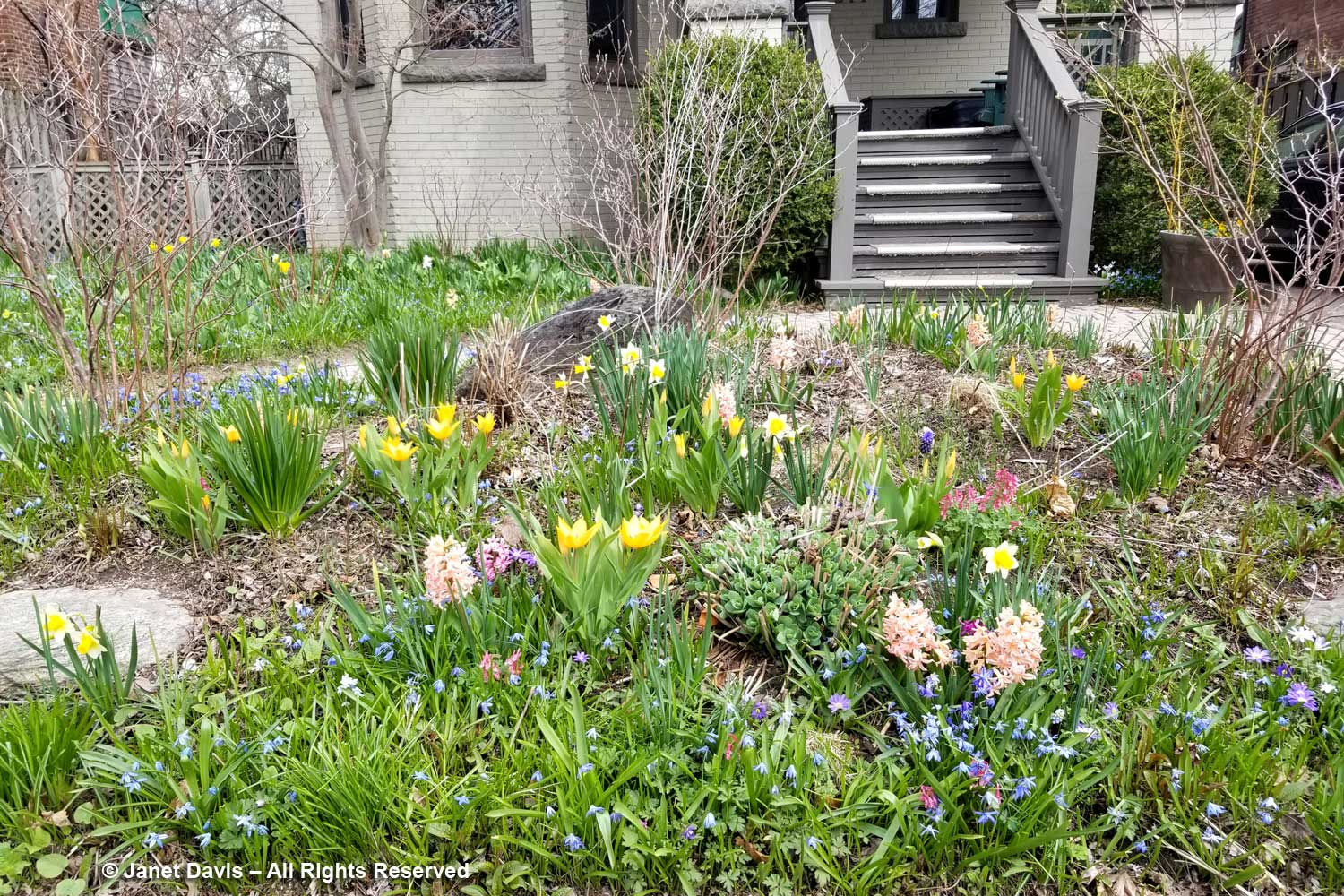
….. is filled with fothergilla, sage, catmint, echinacea, rudbeckia, perovskia, liatris and sedums later; it works hard for its keep!
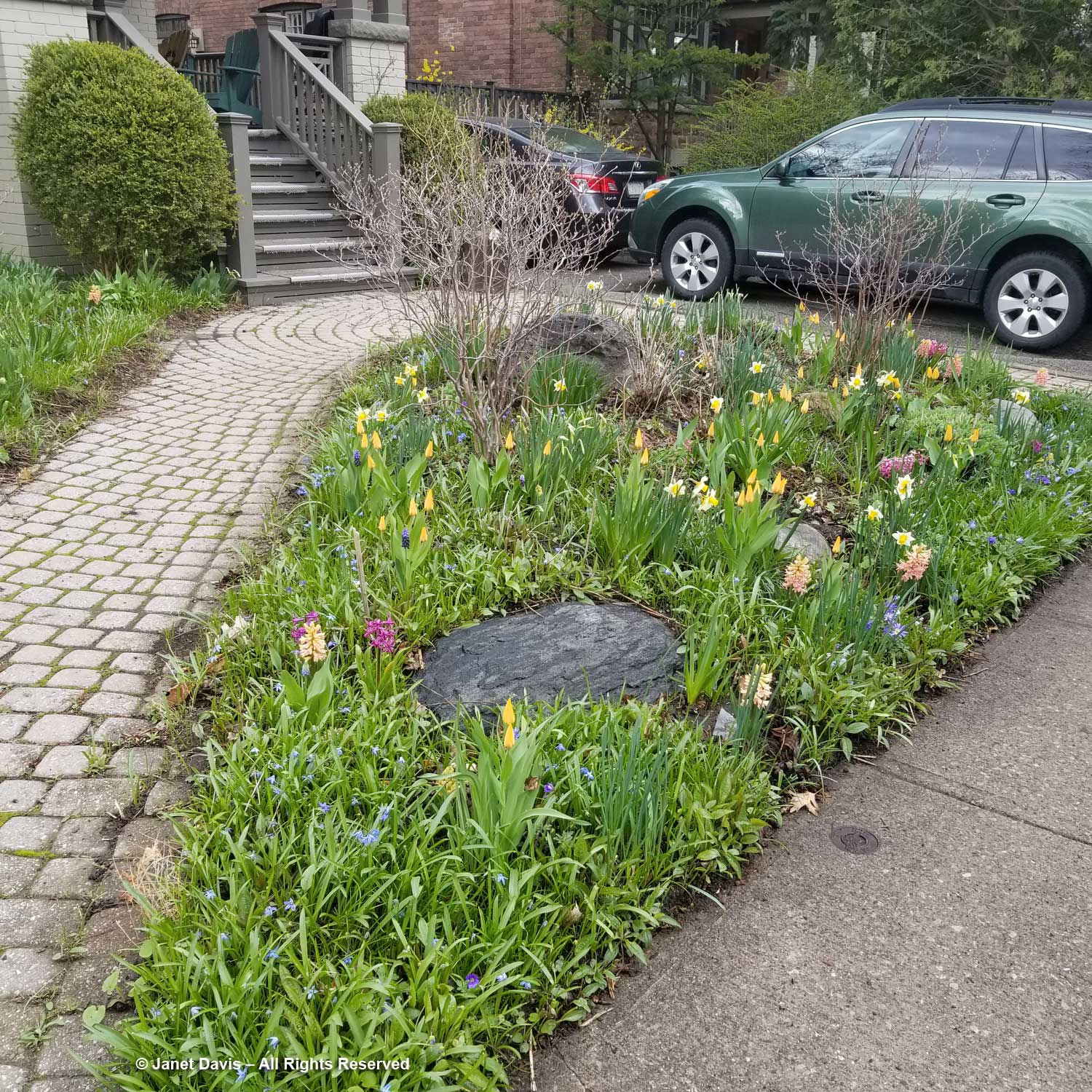
You can see Sedum ‘Autumn Joy’ bulking up here.
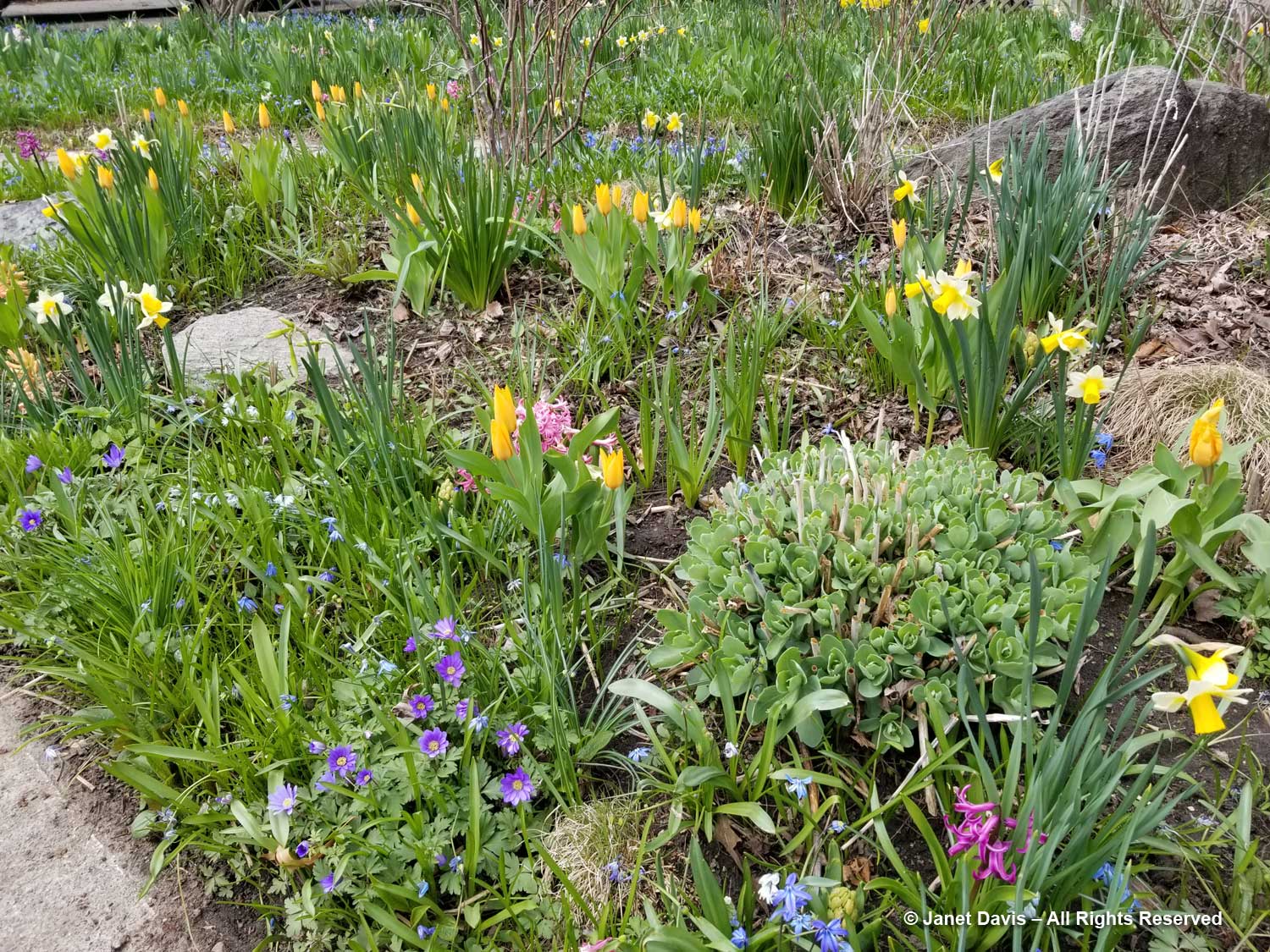
Given how some of the fancy tulip hybrids disappear within a few years, my most important criterion for tulips is that they must be reliably perennial. Because I’m fond of orange in the spring garden (especially with bright pink), my favourite early tulip is the multi-stemmed, pumpkin-orange Tulipa praestans ‘Shogun’ (10-12”). Here it is with hyacinths and Greek anemones, as well as blue Siberian squill.
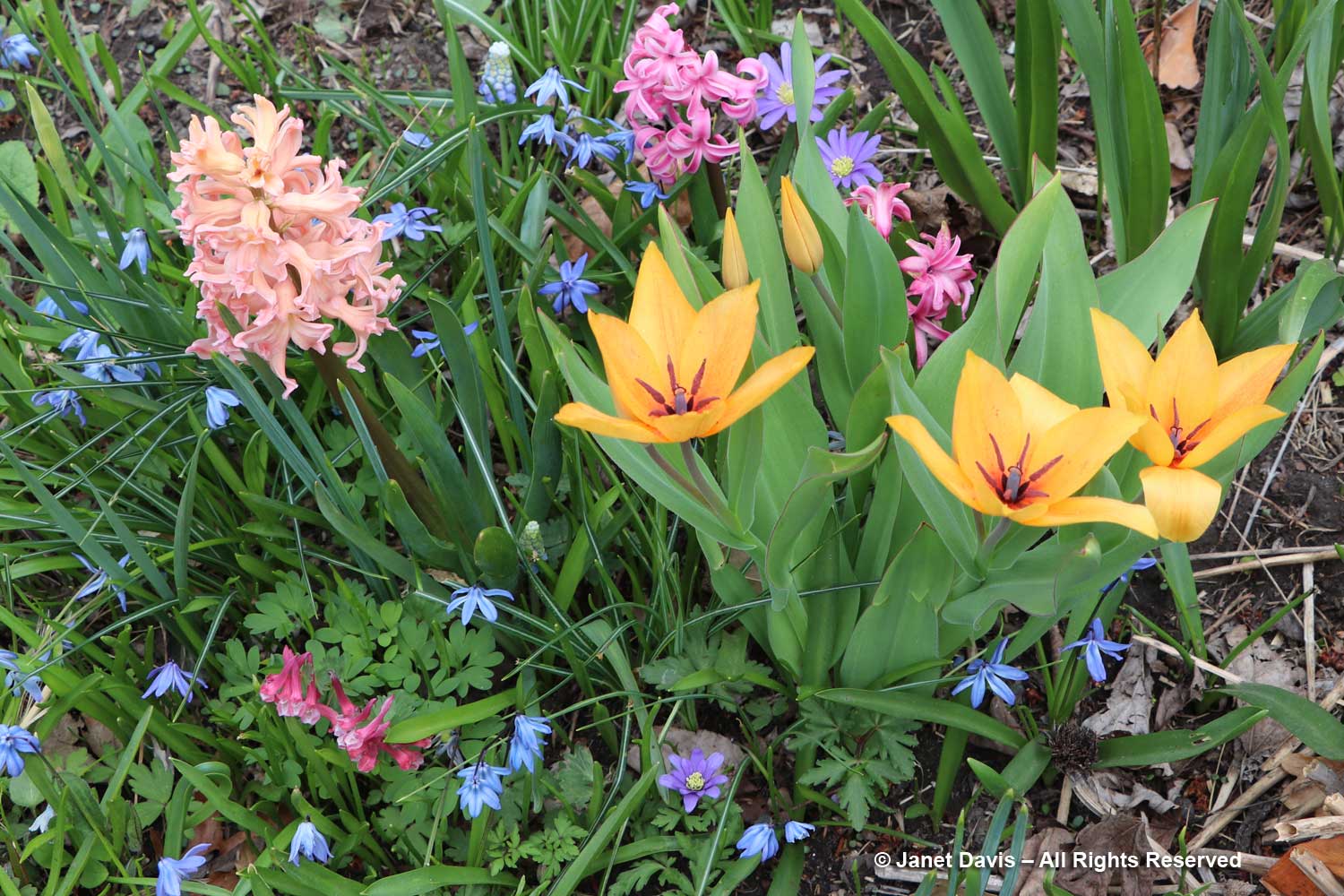
Like many species tulips, ‘Shogun’ multiplies nicely year after year.
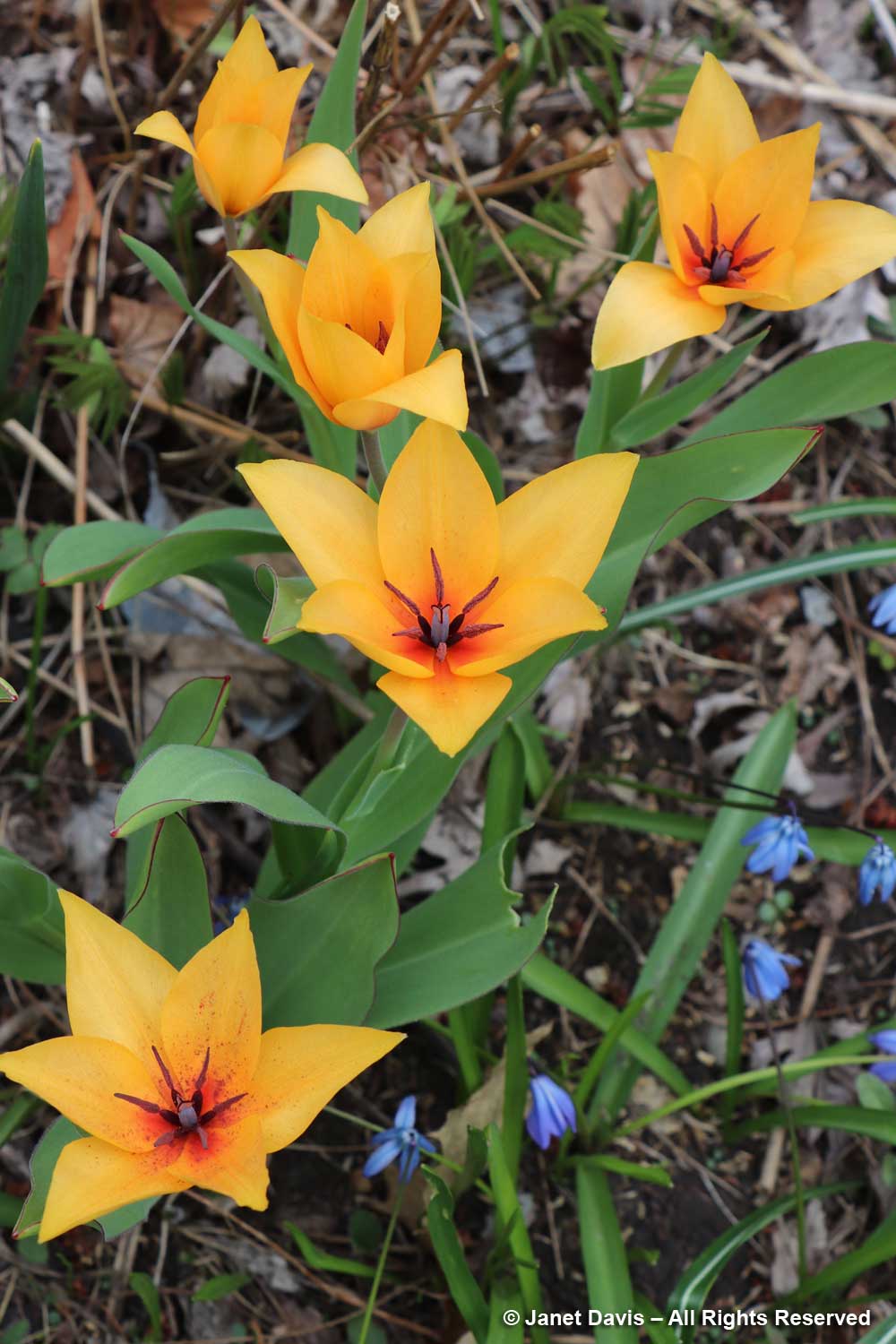
I love the dark stamens. At night, the flowers close.
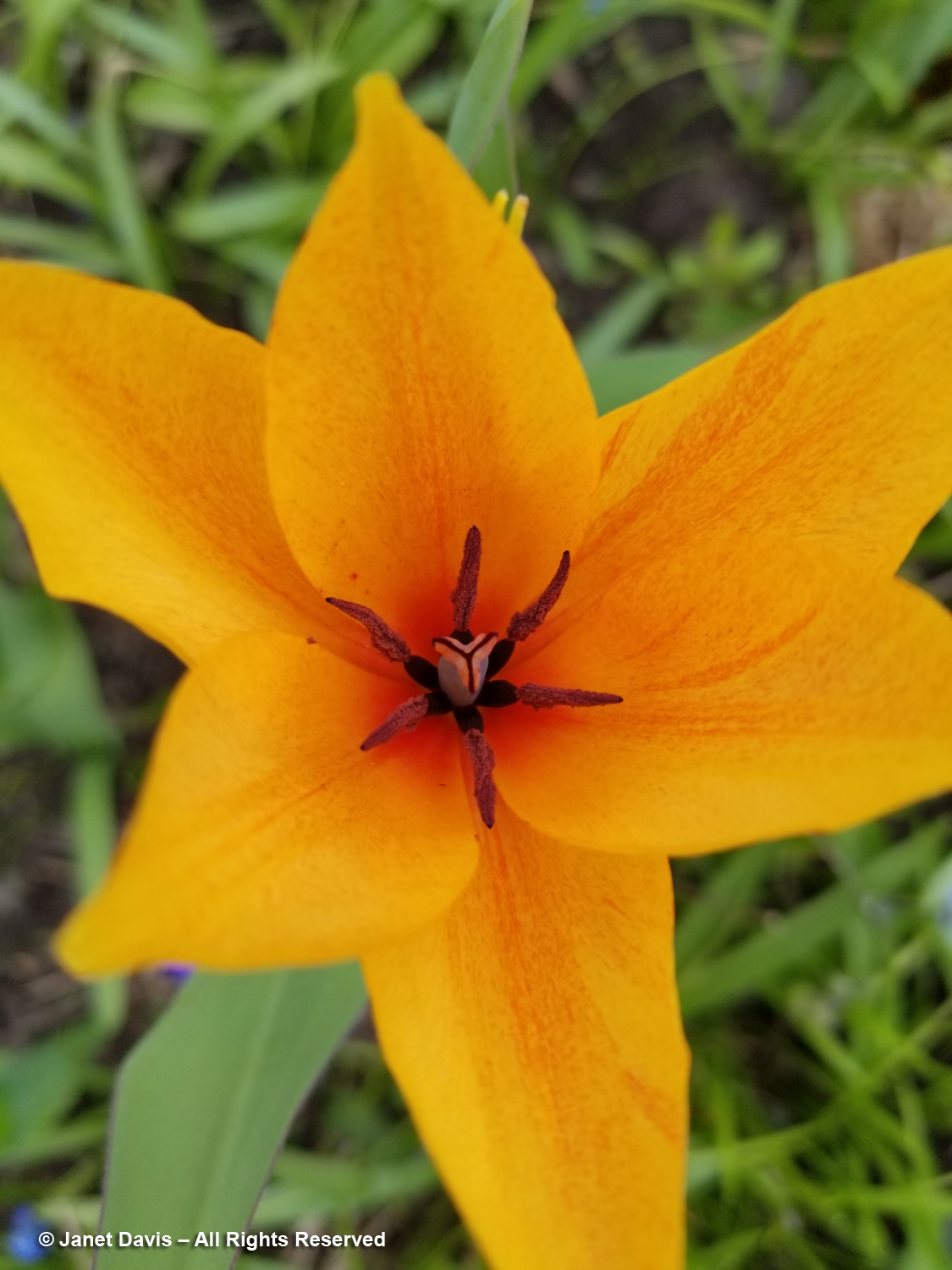
This is also the season for the dependable Kaufmanniana tulips with their striped leaves, like ‘Johann Strauss’, below.
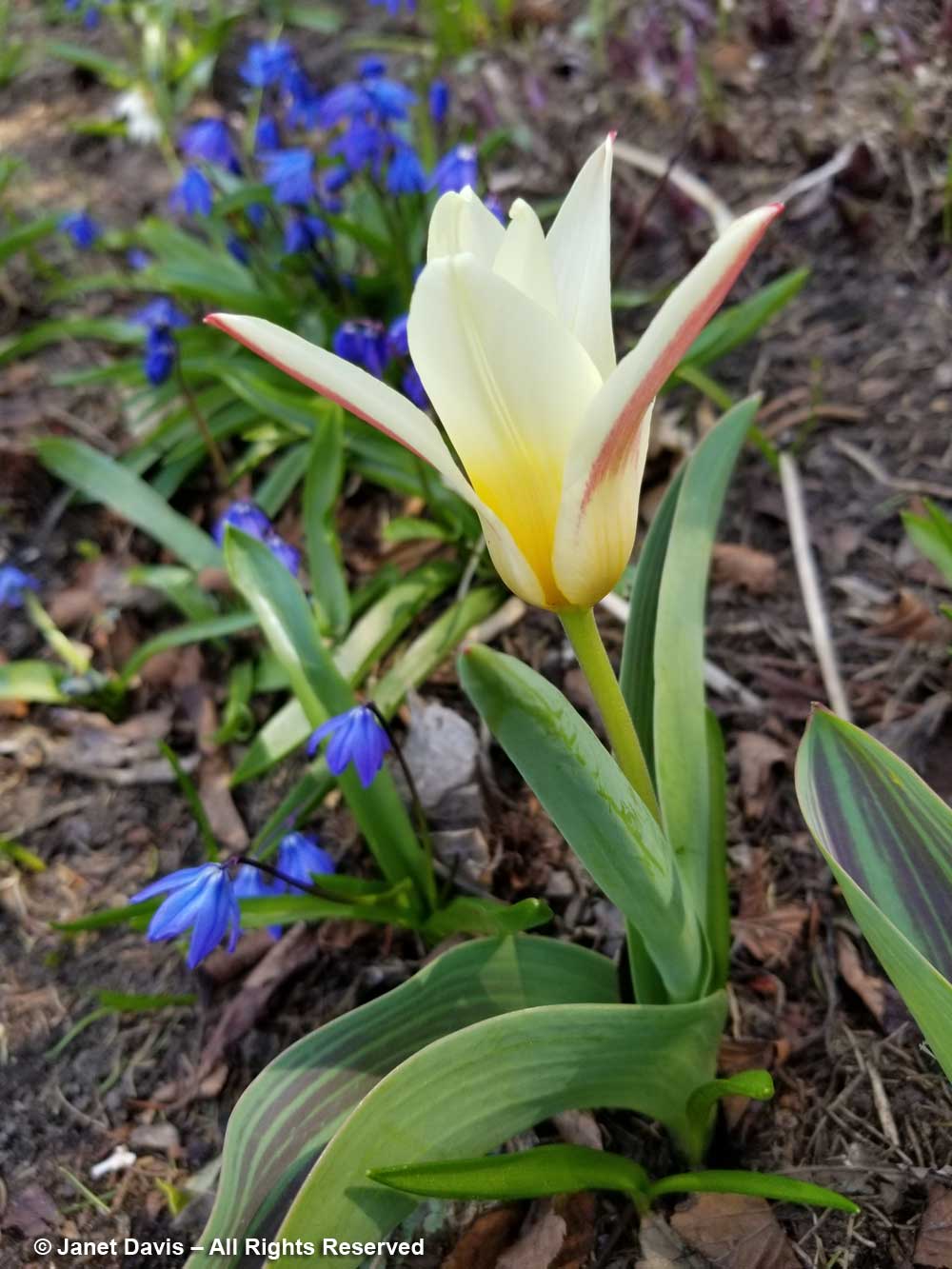
My early daffodil favorite is the little Jonquilla daffodil called ‘Golden Echo’, bred by my Virginia friends Brent and Becky Heath, which I have blogged about previously. Its multiple 12-16” stems mean that its creamy-white flowers with bright golden trumpets keep flowering for several weeks. Here it is below with broad-leaved grape hyacinth (Muscari latifolium)….
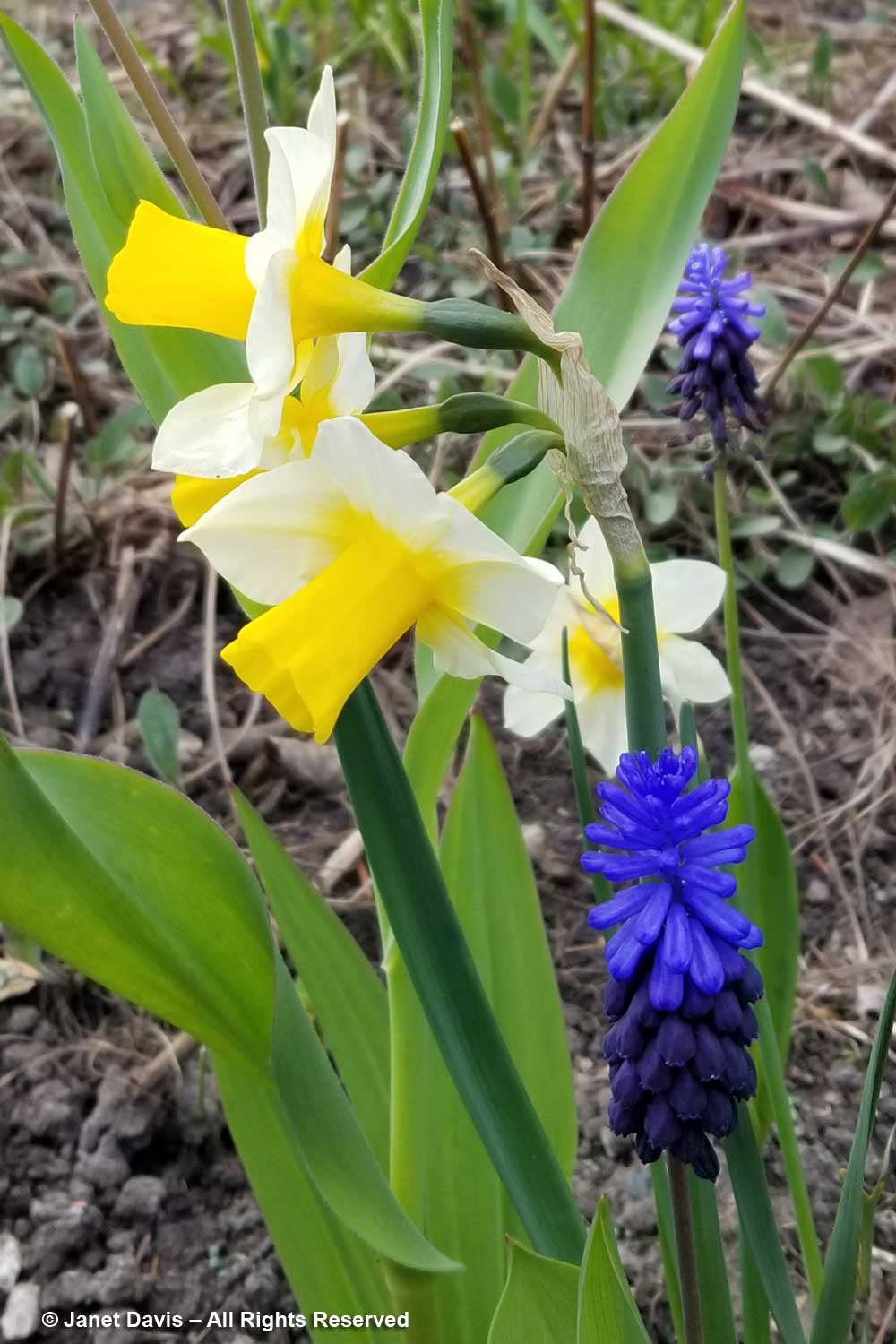
….. with its unusual bi-colored flower spikes. It’s the first of the grape hyacinths to bloom in my garden.
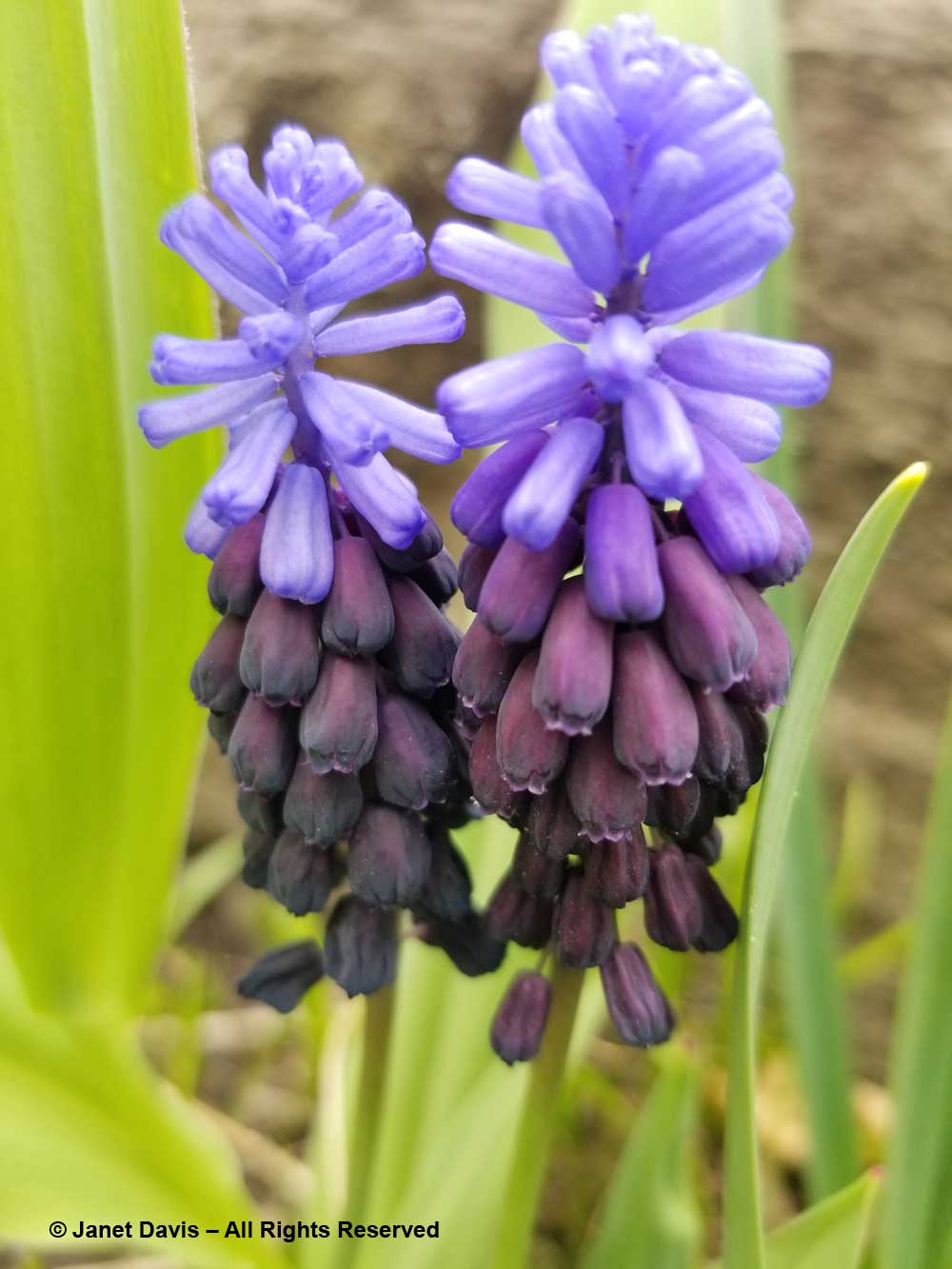
I like to plant hyacinths (Hyacinthus orientalis) every few years, choosing a spot close to the walkway so their perfume can be enjoyed. As the years pass, their stiff flower spikes begin to relax; though they do not multiply, I still want them in the garden. This is 6-year old ‘Pink Pearl’ with pale-blue striped squill (Puschkinia scilloides), still going strong in our cool spring.
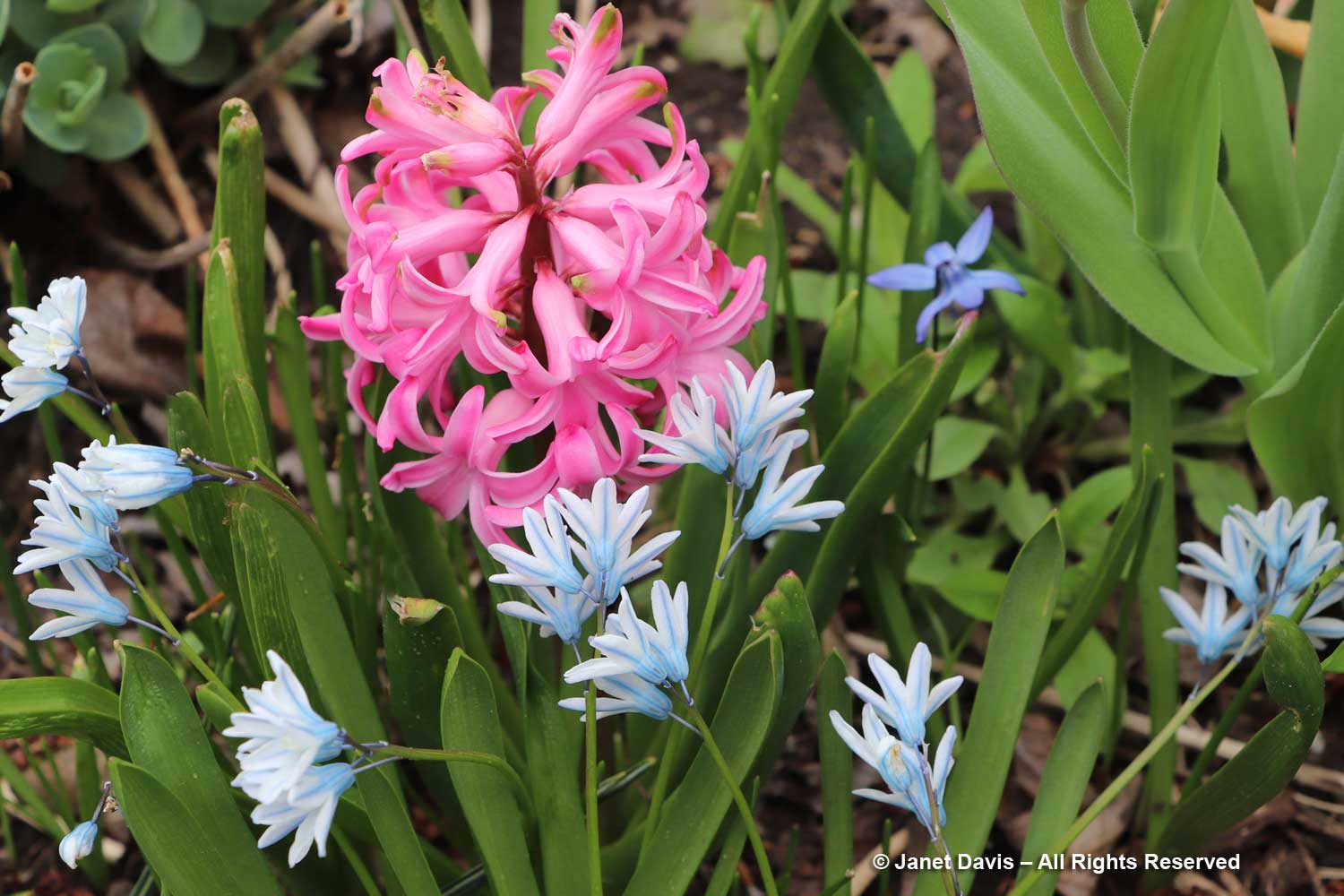
I was quite pleased with this vignette, showing Hyacinthus ‘Gipsy Queen’ in a carpet of blue Siberian squill with Narcissus ‘Golden Echo’ and pink ‘Beth Evans’ corydalis (C. solida) behind.
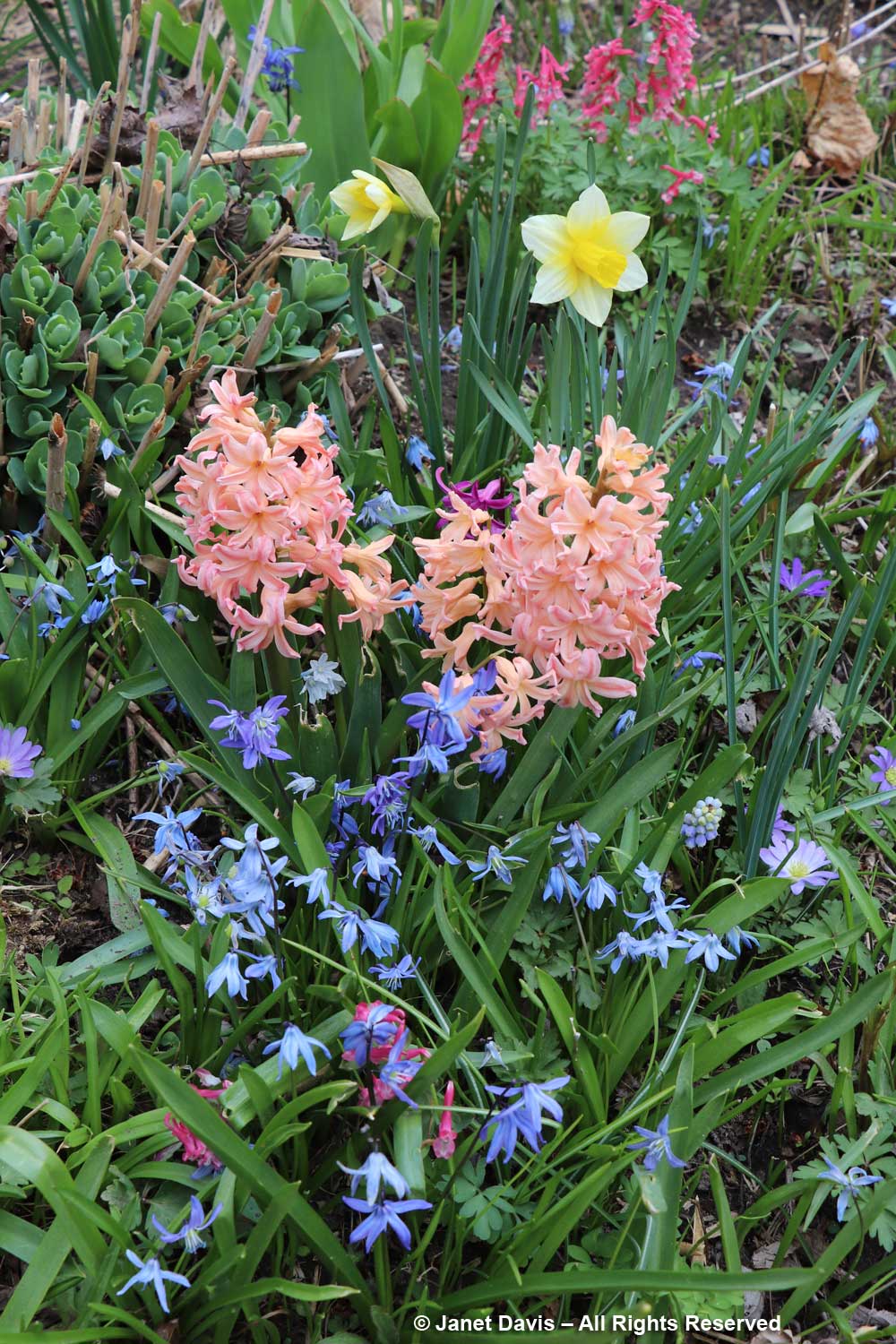
My Grecian windflowers (Anemone blanda) are flowering now, too; this is ‘Blue Shades’. These sweet ephemerals hail from subalpine meadows and woodlands in the Balkans but they’re perfectly hardy in my garden and such a delight when the long-lasting, daisy-like flowers open amidst the ferny, low foliage. When you’re planting this species in autumn, be sure to soak the knobby tubers overnight and plant them with the smooth side facing down. Unlike daffodils and tulips which don’t mind drying out in summer, windflowers prefer soil that remains reasonably moist.
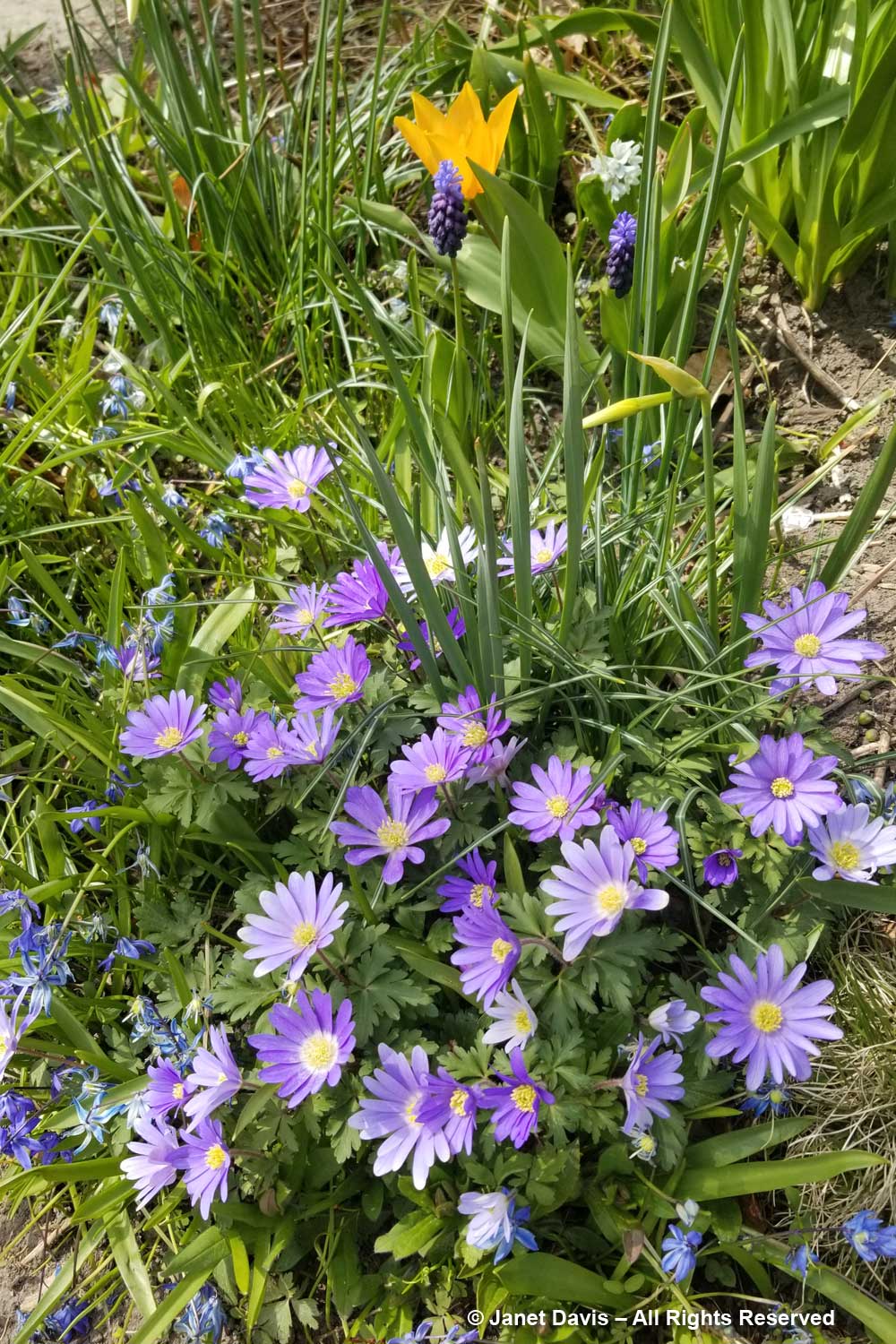
On the path into my back garden, the common purple corydalis (C. solida) carpets the earth where tall Solomon’s seals emerge to flower in June. The corydalis has now spread throughout my garden and the “lawn”, but disappears completely within a few weeks.
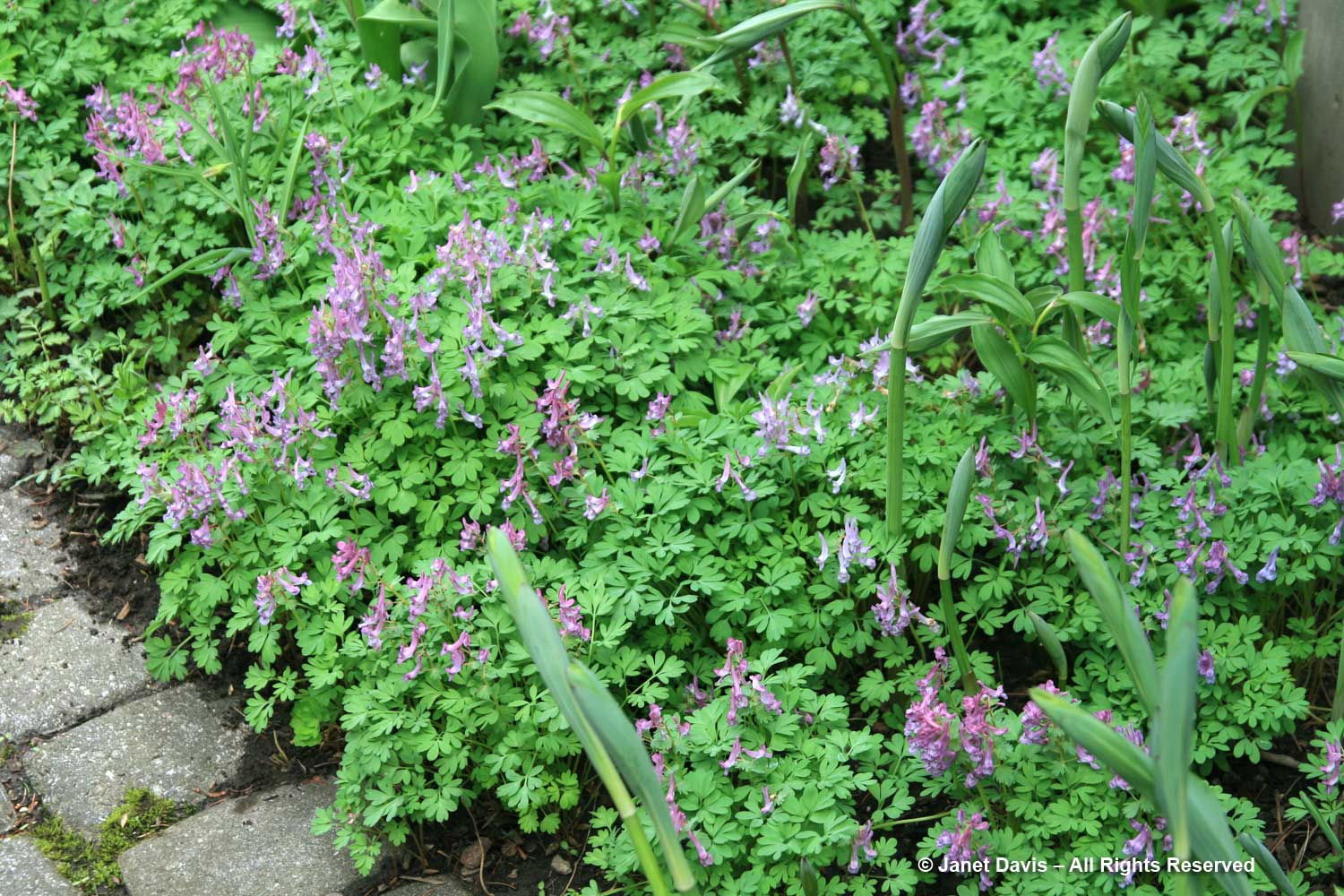
Some years, I’ve added purple pansies to the corydalis carpet for a little excitement!
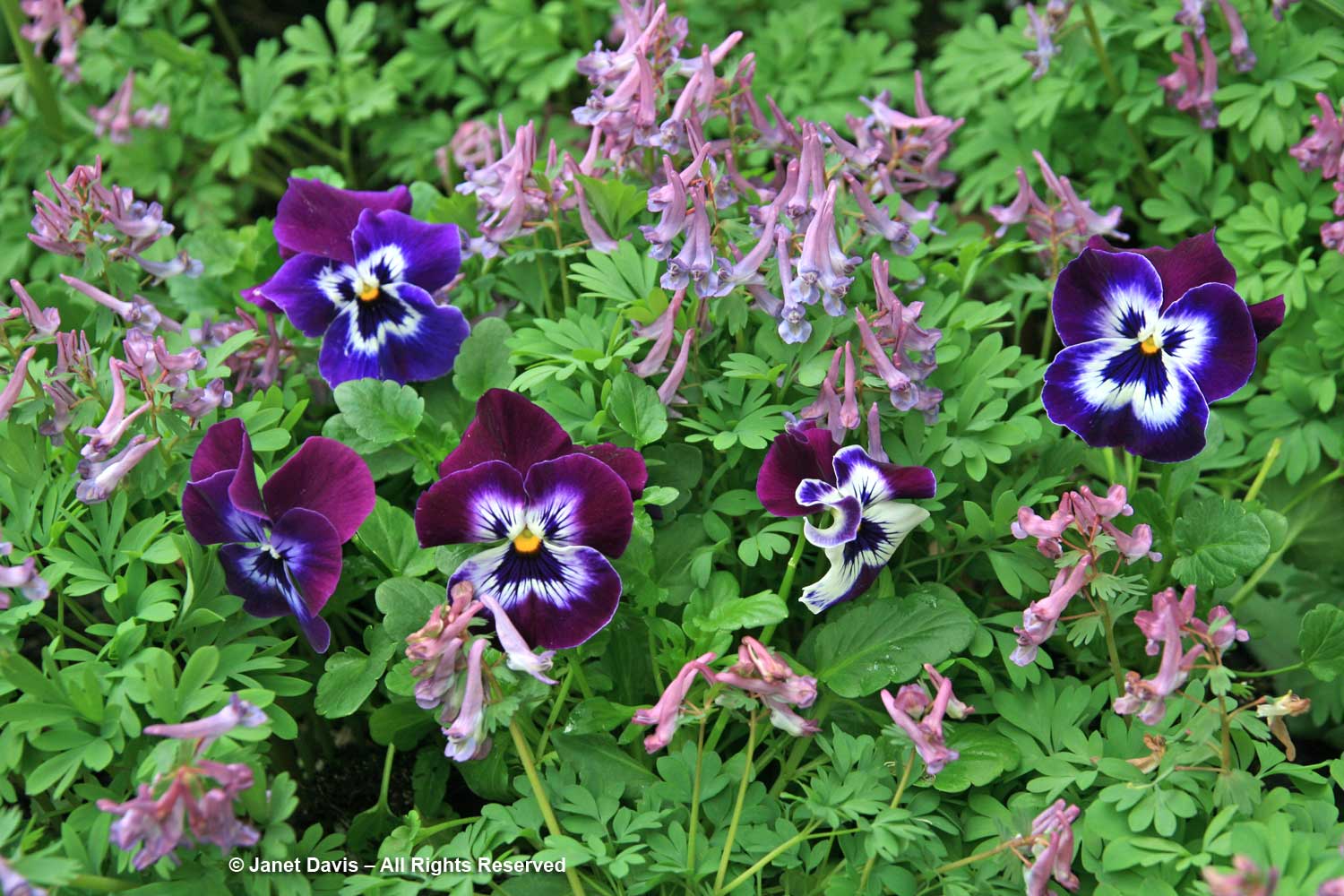
In this partly-shaded area under my black walnut tree, the winter aconites (Eranthis hyemalis) have stayed in bloom a long time, and look quite enchanting with the ‘Beth Evans’ corydalis that popped up in their midst.
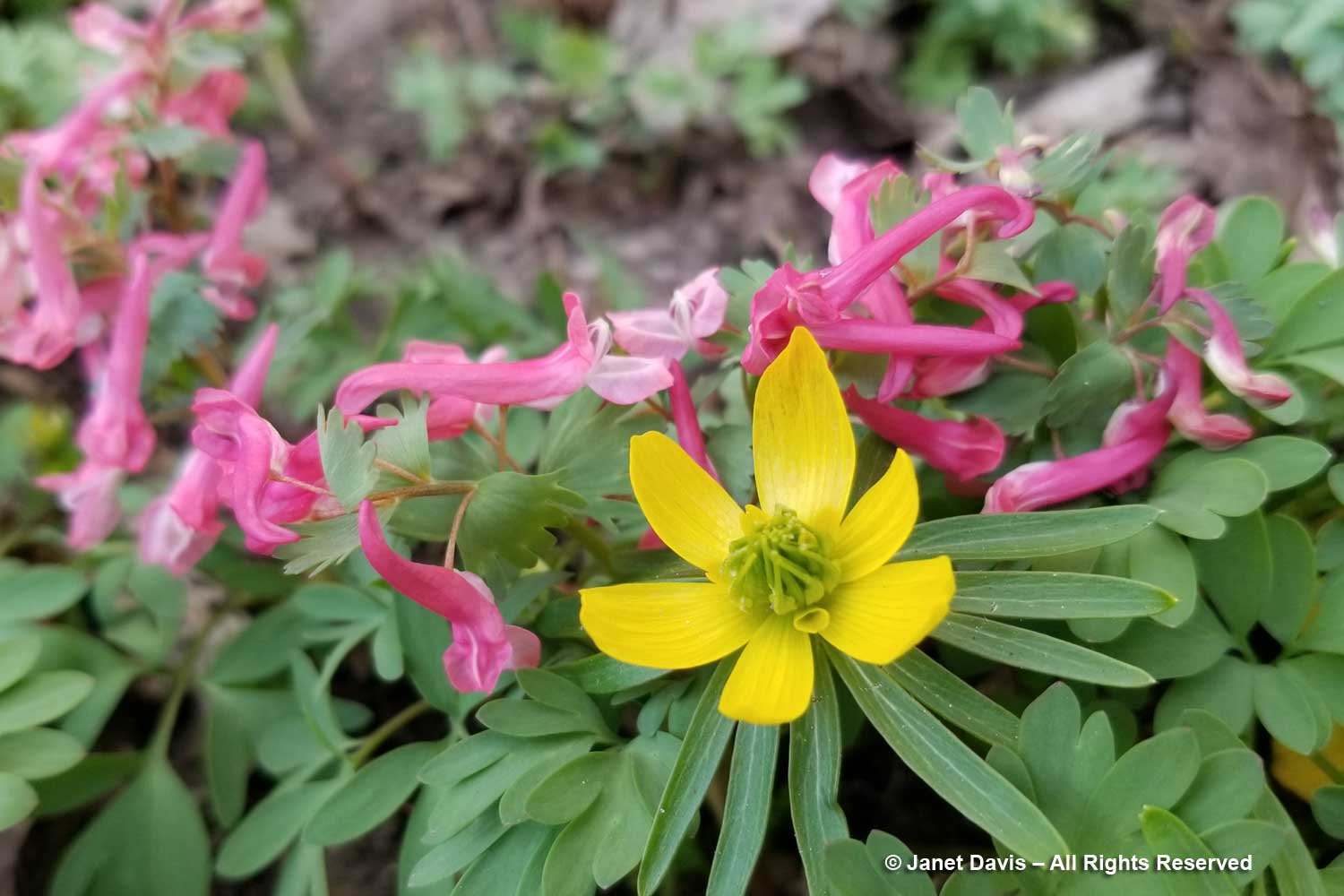
Every spring is a little different, and this one is decidedly reluctant. But I have always hated the tendency for Ontario springs to go from snow to tropical heat overnight – and that can’t be said about 2022. In fact, we could well have a repeat of 2021’s late snow, below (possibly even this week).
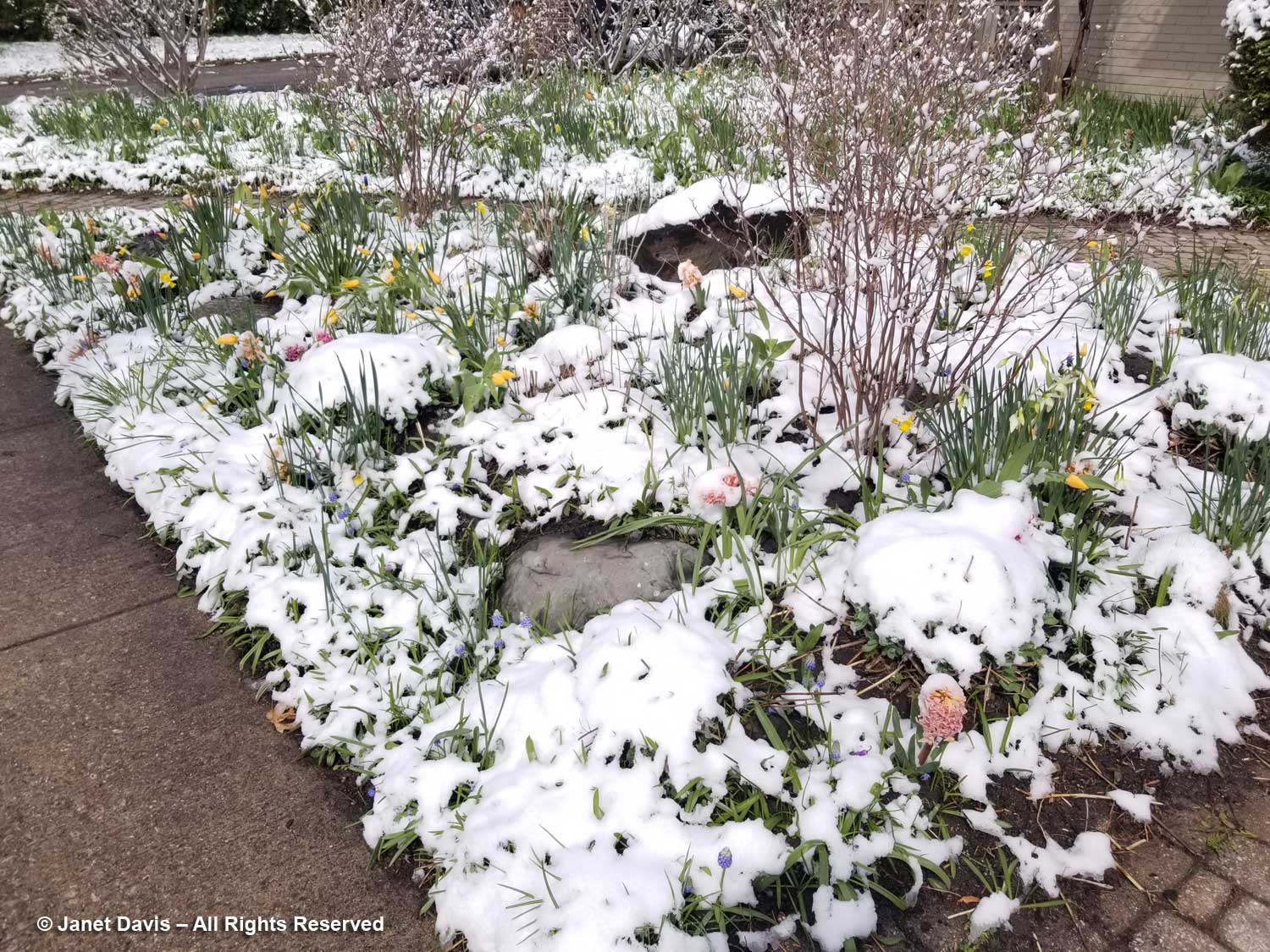
So it’s always a good idea to cut a few blossoms to savour in the house….
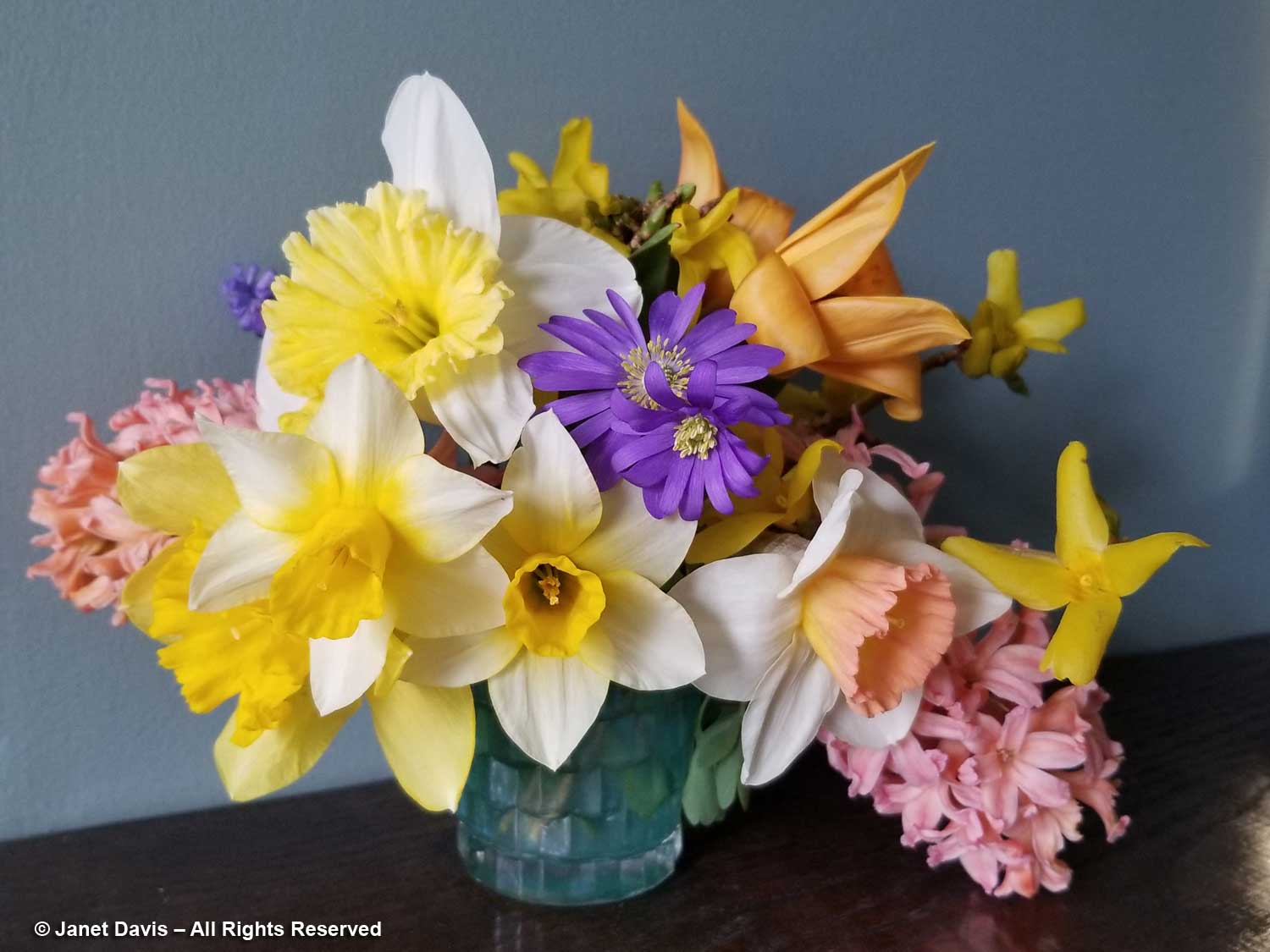
….. because having these little treasures at hand is our reward for surviving another Ontario winter!
